Trump's foreign policy: So crazy it just might work?
- Published
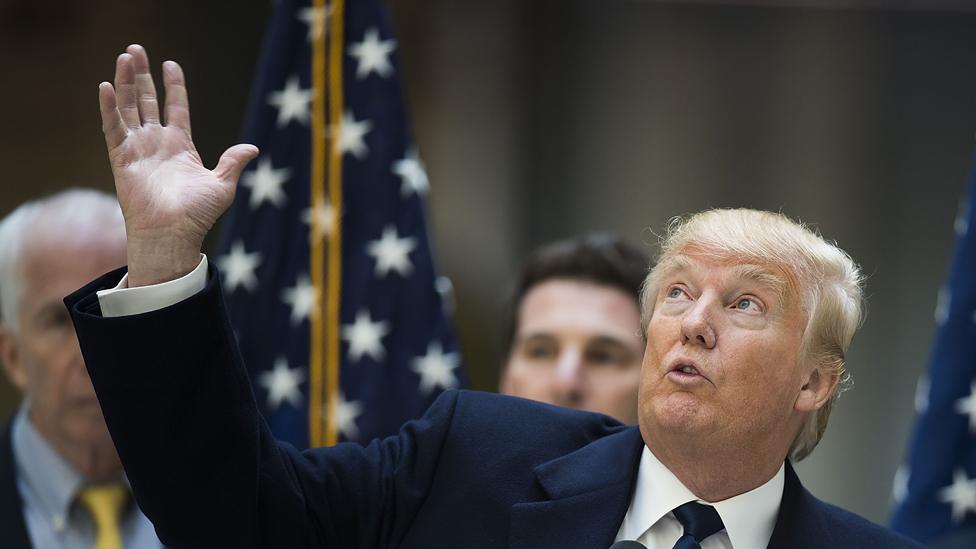
Donald Trump is leading the race to be the Republican candidate for president because he doesn't talk - or act - like a typical politician. When it comes to foreign policy, is that a good thing?
His proposals for foreign relations, laid out in interviews with the New York Times and the Washington Post, are brash and bold - so much so they've alienated moderate Republicans and alarmed diplomats who were attending the nuclear security summit in Washington this week.
At the summit, people talked about reducing the world's nuclear weapons. Yet Donald Trump says South Korea and Japan might want to develop nuclear arsenals. In fact, the foreign policy plans he's discussed in the past week stray far from conservative - or liberal - orthodoxy.
But some make sense - in a strange way. Here's a look at five of his proposals:

Nukes for Tokyo - and Seoul
"We cannot be the policeman of the world," said Trump. "Unfortunately we have a nuclear world now." For that reason, he said, officials in Japan and South Korea may want to build up nuclear arsenals so they can protect themselves against enemies.
Why it's unorthodox: Most people in the foreign-policy establishment think nuclear weapons are dangerous and cause more problems than they solve.
"The less plutonium in the world, the better," says John Bernhard, the former Danish ambassador to the International Atomic Energy Agency, who's in town for the summit.
Japan's foreign minister, Fumio Kishida, said: "It is impossible that Japan will arm itself with nuclear weapons."
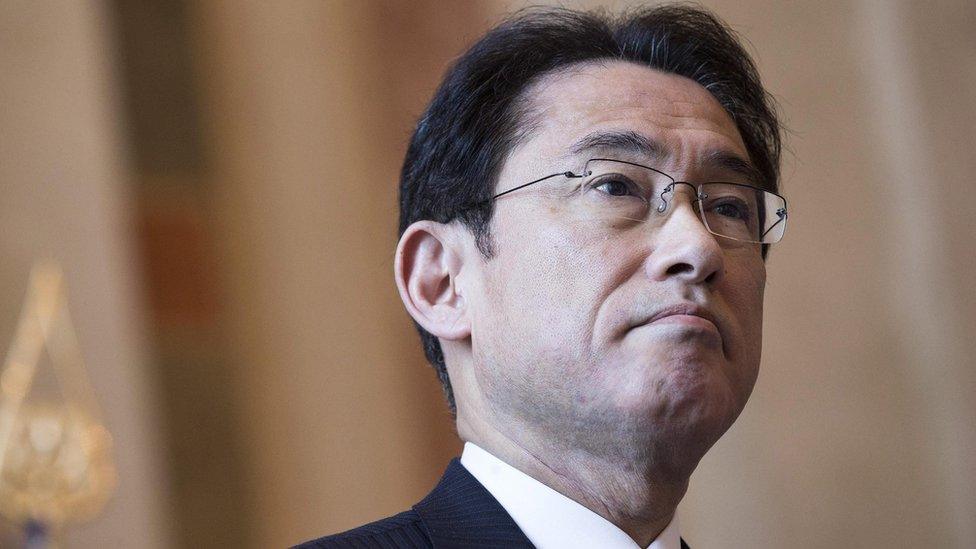
Japan's own foreign affairs minister rejects the idea of a Japan with nuclear weapons
Brilliant or bluster? According to deterrence theory, two enemy nations, each with nuclear weapons, will maintain peaceful relations since "the consequences of a war would be devastating to both", says American University's Gordon Adams.
That's the idea, he says, adding he doesn't think it's true in this case.
Trump's idea, says University of New Hampshire's Bernard Gordon, is "unbelievably dangerous and naive".

No US forces in South Korea and Japan
He said Japanese and South Korean officials should contribute more to the cost of keeping US troops stationed in their countries. If not, he said, he'd consider bringing the troops home.
In a phone interview, external with the New York Times, he said: "I would be willing to do it."
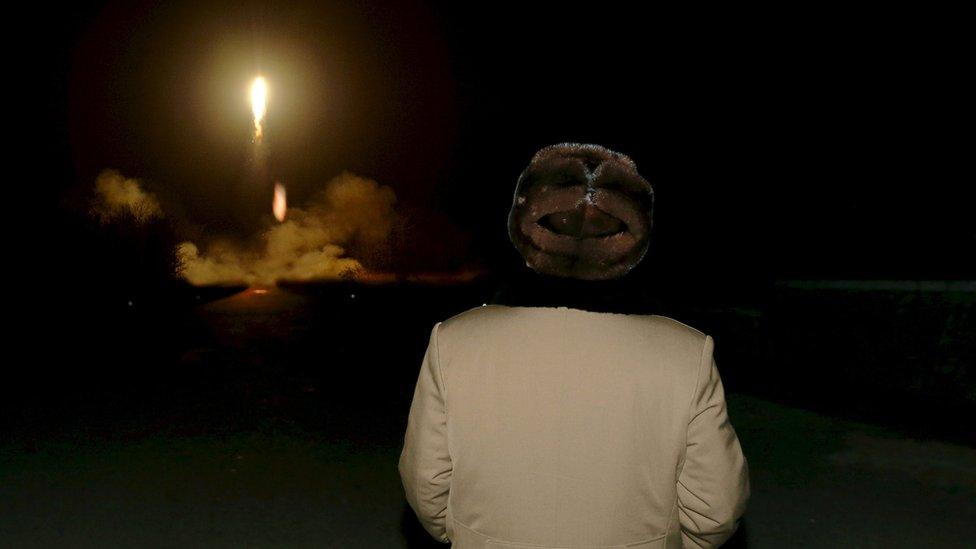
Why it's unorthodox: Right now about 50,000 US troops are stationed in Japan, and 30,000 in South Korea. These troops, Adams says, are an important - and efficient - part of US strategy in the region, helping to maintain peace and security.
Brilliant or bluster? "Any self-respecting nation should be responsible for their own defence," says Adams, describing a theoretical argument.
It doesn't apply here, he says, given the close relationship between the US and its partners - and the important role the US troops play in maintaining regional security.

Nato is a rip-off
The North Atlantic Treaty Organisation was created in 1949 as fortification against the Soviet Union, and it's comprised of 26 European countries, Canada and the US.
Yet in his New York Times interview, external, Trump showed scepticism about Nato, describing it as "unfair, economically, to us".
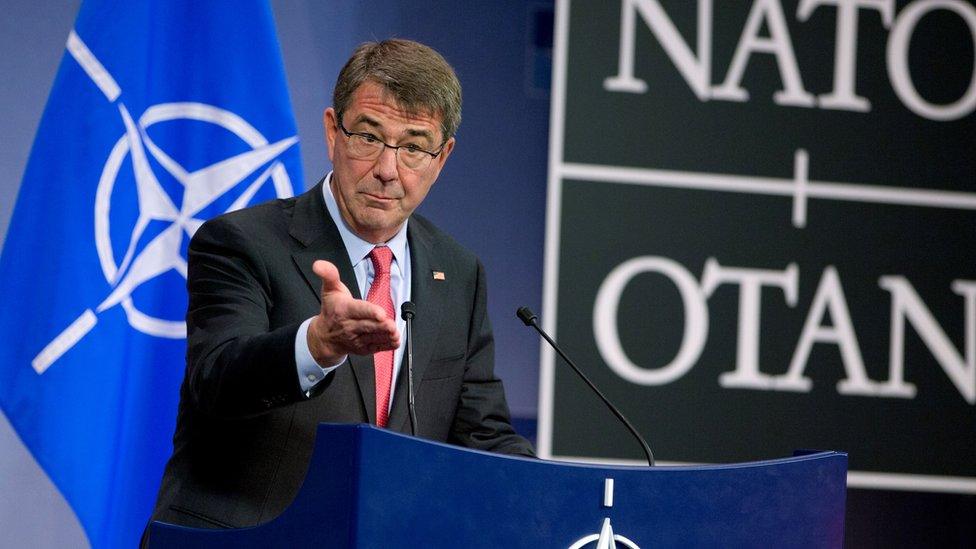
He said that instead of Nato, he's open to the possibility of a new, different kind of Europe-based organisation - one, for example, that focuses on fighting militant groups.
Why it's unorthodox: Rather than being unfair, Nato is "a fundamental alliance", says Paul Frazer, a former Canadian ambassador, that's "endured the test of time". This reflects a near-universal view among diplomats in Europe and the US.
Brilliant or bluster? Many Nato members goal spend less than 2% of their GDP on defence, falling short of the organisation's requirements.
"Europeans should share responsibility," says Adams.
Saying bad things about Nato could ramp up on pressure on Europeans to take the alliance more seriously - and to spend more money.

Ground troops in Syria
Americans have "no choice", said Trump in a debate, external in March. They must deploy 20,000-30,000 troops to Syria and Iraq to fight the Islamic State group (IS).
Then in a Washington Post interview, external, he said he didn't mean what he said - not exactly. He said if the US decided to send troops to Syria, he'd want other countries to participate in the undertaking.
Why it's unorthodox: US special forces are currently in Syria, but the prospect of sending combat troops, especially in large numbers, is controversial.
Many Democrats oppose the idea of deploying combat troops, while Republicans have pushed for a bigger role for the US military in the Middle East.
Still Trump's initial proposal - with a specific number of combat troops to be deployed - surprised people in both parties.
Brilliant or bluster? Frazer says he agrees that "the key part" of Trump's argument is sharing the burden of fighting IS with other countries. If elected president, says Frazer, Trump "would have the challenge of that test".
In other words, it's easy for Trump to say that he'd like to see the US and other countries co-operate on their efforts to combat IS.
But convincing the leaders of other countries to send their troops into battle in Syria is likely to be much harder.

Torture
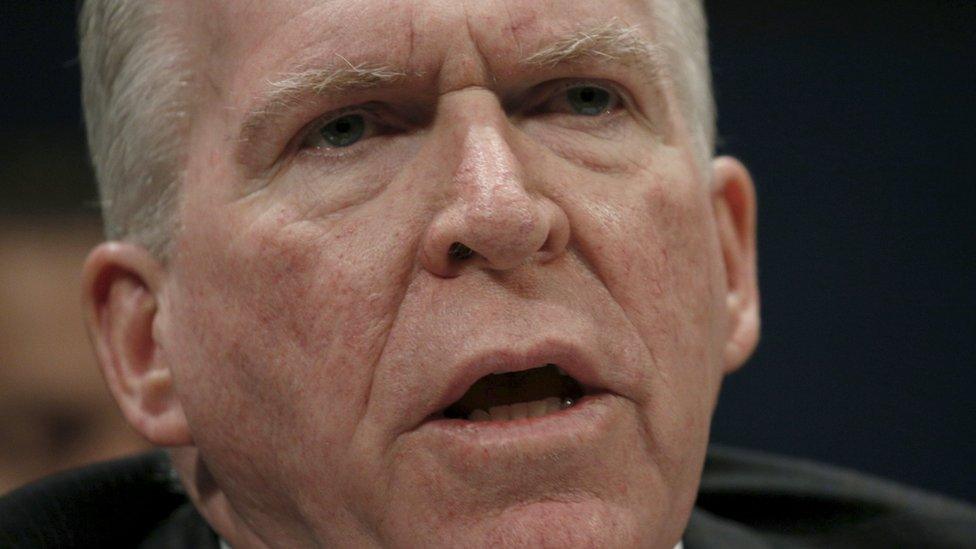
CIA Director John Brennan has faced questions over the agency's prior torture programme
On NBC's Today show, Trump said he thought individuals suspected of terrorism should be tortured: "If they could expand the laws, I would do a lot more than waterboarding."
Why it's unorthodox: After President George W Bush left office, details about intelligence-gathering programmes were revealed. People in the US learned about the use of waterboarding, sleep deprivation and other enhanced interrogation techniques - methods that are widely regarded as torture.
Democrats said they were appalled at the interrogation methods that were used during the Bush administration, while some Republicans said they thought they were necessary at the time.
Brilliant or bluster? According to a new Reuters/Ipsos poll, external, most Americans agree with Trump - and say torture is justified under certain circumstances. But analysts say it's not realistic.
"All emotional appeal," said Adams. "No rationality. Torture is a terrible way to get information."
Still, as Frazer says, presidential candidates frequently say things during a campaign and then find out later that the world is more complicated than they'd thought.
On the question of interrogation methods as well as on the other issues, Frazer says: "I'm hopeful that Mr Trump would be prepared to give second thoughts to his previous statements."
- Published29 March 2016
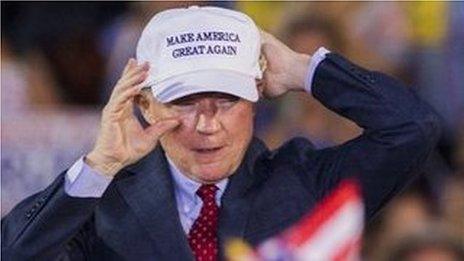
- Published21 March 2016
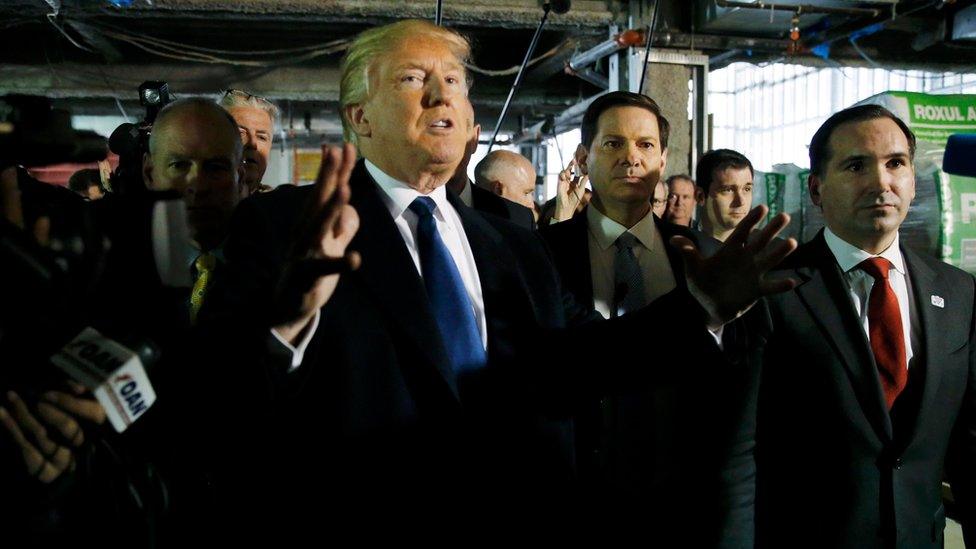
- Published22 March 2016